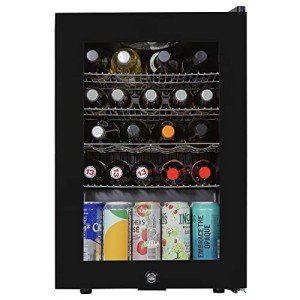The Importance of Temperature-Controlled Fridges in Various Industries
Temperature-controlled fridges are an important component in different markets, including health care, food and beverage, pharmaceuticals, and laboratories. These specialized refrigerators are developed to maintain a constant temperature level, which is vital for storing delicate products, samples, and substances. In this article, we will explore the different types of temperature-controlled fridges, their applications, and the advantages they offer.
What are Temperature-Controlled Fridges?
Temperature-controlled fridges, also understood as accuracy refrigerators, are created to keep a precise temperature variety. They are geared up with advanced temperature level control systems, which can be set to specific temperatures, and are created to decrease temperature changes. These fridges are available in numerous sizes, from small, compact units to large, walk-in models.
Types of Temperature-Controlled Fridges
There are numerous kinds of temperature-controlled fridges, each developed for particular applications:
- Laboratory Refrigerators: These fridges are developed for laboratory settings and are usually used to keep biological samples, vaccines, and other temperature-sensitive products.
- Pharmaceutical Refrigerators: These fridges are developed for saving pharmaceutical products, consisting of medications, vaccines, and other temperature-sensitive substances.
- Medical Refrigerators: These fridges are designed for medical settings and are usually utilized to keep medical products, including vaccines, blood, and other temperature-sensitive materials.
- Food and Beverage Refrigerators: These fridges are designed for food and beverage applications, consisting of dining establishments, coffee shops, and catering services.
- Industrial Refrigerators: These fridges are developed for commercial applications, including food processing, production, and storage.
Applications of Temperature-Controlled Fridges
Temperature-controlled fridges have various applications across different industries:
- Healthcare: Temperature-controlled fridges are utilized in medical facilities, clinics, and healthcare facilities to save medical supplies, consisting of vaccines, blood, and other temperature-sensitive materials.
- Food and Beverage: Temperature-controlled fridges are used in restaurants, cafes, and catering services to store food and drinks at accurate temperature levels, ensuring food safety and quality.
- Pharmaceuticals: Temperature-controlled fridges are utilized in pharmaceutical production, storage, and distribution to maintain the quality and efficacy of medications and vaccines.
- Laboratories: Temperature-controlled fridges are utilized in laboratories to save biological samples, vaccines, and other temperature-sensitive materials.
Advantages of Temperature-Controlled Fridges
Temperature-controlled fridges offer several advantages, including:
- Precision Temperature Control: Temperature-controlled fridges offer precise temperature control, which is vital for saving delicate items, samples, and substances.
- Increased Safety: Temperature-controlled fridges ensure the safe storage of temperature-sensitive products, reducing the risk of contamination and wasting.
- Enhanced Quality: Temperature-controlled fridges preserve the quality of products, samples, and compounds by storing them at precise temperatures.
- Regulative Compliance: Temperature-controlled fridges help companies adhere to regulatory requirements for the storage of temperature-sensitive products.
- Energy Efficiency: Temperature-controlled fridges are designed to be energy-efficient, lowering energy consumption and costs.
Functions to Consider When Choosing a Temperature-Controlled Fridge
When picking a temperature-controlled fridge, consider the following functions:
- Temperature Control: Look for a refrigerator with innovative temperature control systems, consisting of digital temperature level display screens and alarms.
- Insulation: Choose a refrigerator with premium insulation to decrease temperature level variations.
- Shelving: Consider a refrigerator with adjustable shelving to accommodate various sizes and kinds of containers.
- Humidity Control: Look for a fridge with humidity control includes to maintain optimum humidity levels.
- Security: Choose a refrigerator with secure locking mechanisms to prevent unapproved access.
- Tracking: Consider a refrigerator with remote monitoring abilities to track temperature and humidity levels.
- Upkeep: Look for a fridge with simple upkeep features, including replaceable filters and cleaning up systems.
Regularly Asked Questions
Q: What is the distinction in between a temperature-controlled refrigerator and a basic fridge?
A: A temperature-controlled refrigerator is developed to maintain a precise temperature variety, while a standard refrigerator is developed for general-purpose storage.
Q: What are the benefits of using a temperature-controlled fridge in a laboratory setting?
A: Temperature-controlled fridges in laboratory settings offer exact temperature control, increased security, improved quality, and regulatory compliance.
Q: How do I pick the right temperature-controlled fridge for my service?
A: Consider aspects such as temperature level control, insulation, shelving, humidity control, security, tracking, and upkeep when choosing a temperature-controlled fridge.
Q: Can temperature-controlled fridges be used for keeping food and beverages?
A: Yes, temperature-controlled fridges can be used for storing food and beverages, specifically in dining establishments, cafes, and catering services.
Q: Are temperature-controlled fridges energy-efficient?
A: Yes, temperature-controlled fridges are created to be energy-efficient, lowering energy consumption and expenses.
In conclusion, temperature-controlled fridges are important elements in different markets, supplying accurate temperature control, increased security, enhanced quality, and regulatory compliance. When selecting Frydge -controlled fridge, think about functions such as temperature control, insulation, shelving, humidity control, security, tracking, and maintenance. By selecting the best temperature-controlled fridge, companies can guarantee the safe and efficient storage of temperature-sensitive products.

